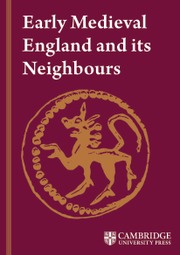Note on the term "Anglo-Saxon"
Contrary to some social media claims, Early Medieval England and its Neighbours (EMEN) has not banned the term 'Anglo-Saxon'. In fact, we continue to welcome the use of the term Anglo-Saxon wherever and whenever an author considers it the most useful descriptive term to use within the context of their research. The term is not banned, nor is its use discouraged.
The refreshed journal is about so much more than a title change. It has an expanded scope, an expanded editorial team, will be published more frequently rather than once per year, will be openly accessible to everyone instead of behind a subscription paywall, will return to publishing on time, and will offer authors a more structured and transparent editorial process. All of these changes will help the journal be a more effective, accessible and impactful home for contemporary research in this field.
The relaunch gave us an opportunity to consider whether the journal’s title still best described the scope of the journal’s coverage after 50 years, and the terminology most commonly used by the people who read and write for the journal. We did so with advice from a broad spectrum of researchers.
The journal’s scope has developed to go beyond ‘Anglo-Saxon England’ and we wanted to take the opportunity of the relaunch to express that in the title.





Twitter